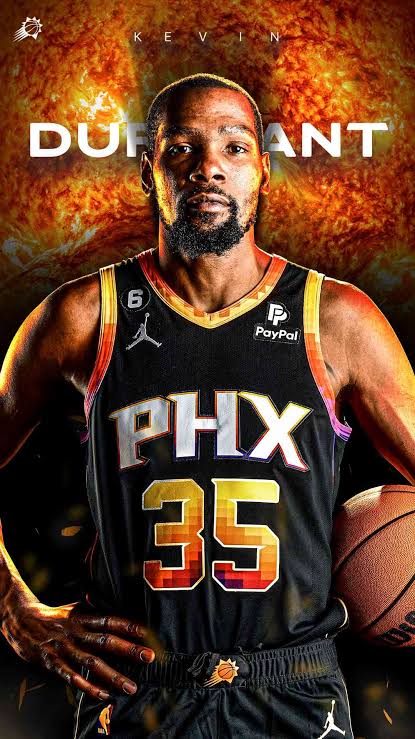What is Basketball Without Me?” Kevin Durant Asks
Kevin Durant, one of the most influential figures in modern basketball, is known for his on-court prowess and off-court musings. Throughout his career, Durant has become more than just a basketball player; he’s a cultural icon, a subject of intense debates, and a man who has continually reshaped the narrative around his place in the sport. So, when Durant provocatively asks, “What is basketball without me?” it isn’t just a question—it’s a statement of his profound impact on the game.
Durant’s legacy is undeniably tied to his statistics: two NBA championships, two NBA Finals MVPs, a regular-season MVP award, multiple scoring titles, and countless All-Star selections. His ability to score from virtually anywhere on the floor, combined with his size and agility, has made him one of the most unguardable players in the history of the league.
However, to reduce Durant’s impact to mere numbers would be an injustice. Durant has transcended being a stat sheet stuffer. His influence stretches far beyond the hardwood. His decision to join the Golden State Warriors in 2016, after coming close to winning a championship with the Oklahoma City Thunder, was a move that sent shockwaves through the basketball world. The backlash he received for that choice was unprecedented, but so were the results. Durant became a pivotal piece of a Warriors dynasty, contributing to their dominance and rewriting the script on what it means to chase championships.
Durant’s move to the Warriors highlighted a shift in player empowerment, where stars could dictate their own destinies rather than being beholden to traditional expectations of loyalty. In an era of increased player movement and power, Durant’s decision was a watershed moment, emblematic of a broader trend that has only gained momentum in the years since.
Durant’s game is a study in evolution. Initially known for his scoring, he has developed into a more well-rounded player, improving his playmaking, defense, and leadership skills. Durant’s ability to adapt is a testament to his dedication to the craft of basketball. In Brooklyn, alongside Kyrie Irving, and now Phoenix alongside Devin Booker, he’s taken on the role of a mentor while still being a dominant force on the court.
When Durant questions what basketball would be without him, it isn’t just about his scoring titles or MVP awards. It’s about the way he’s reshaped how the game is played. He’s a seven-footer who moves like a guard, a player who has blurred the lines between positions in the modern NBA. His success has helped push the league towards a more positionless style of play, where versatility is prized above all else.
Durant’s game has also become a blueprint for the new generation of players. Young stars like Jayson Tatum and Brandon Ingram have openly discussed how they modeled aspects of their game after Durant’s. His influence is evident in the NBA’s increasing emphasis on scoring from the perimeter and the rise of multi-dimensional forwards who can handle the ball, shoot from deep, and defend multiple positions.
Off the court, Durant has been just as influential. His involvement in the tech world, investments in startups, and work in the entertainment industry have expanded his influence beyond basketball. He’s a player who understands that his brand isn’t limited to what he does on the court. His company, Thirty-Five Ventures, co-founded with his business partner Rich Kleiman, has made him a significant player in the world of business and media.
Durant has also been vocal on social media, using platforms like Twitter to engage with fans, critics, and fellow players. This willingness to speak his mind has made him a more relatable figure, even if it has also invited controversy. Unlike the more guarded personas of some other NBA superstars, Durant is unafraid to share his thoughts, even when they might be unpopular. This openness has made him a complex figure, one who defies easy categorization.
So, what is basketball without Kevin Durant? The answer is incomplete. Basketball without Durant is a sport without one of its most unique and talented players, without one of its most compelling narratives. Durant’s presence has helped shape the modern NBA, from the way the game is played on the court to the way players assert their power off it. His legacy is intertwined with the story of the league over the past decade.
In many ways, basketball without Kevin Durant is a less interesting, less dynamic version of the game. His combination of skill, influence, and willingness to challenge the status quo has made him indispensable to the sport. Whether you love him or hate him, it’s impossible to ignore the question he poses. And perhaps, that’s exactly the point.
